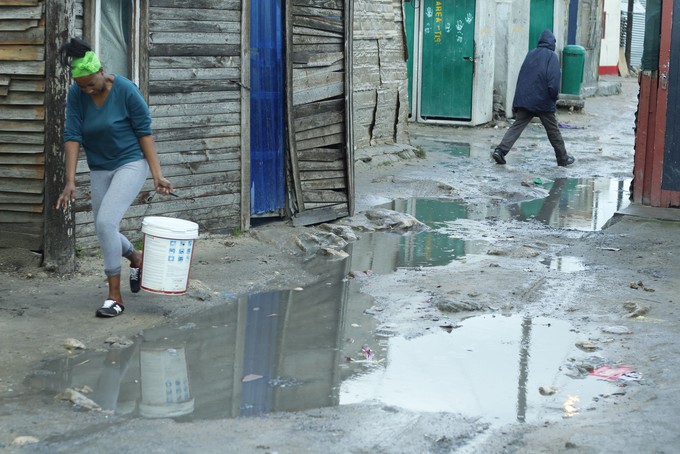Bogged down in Never Never land
Winter rains make life hard for Philippi shackdwellers
Nomentombazana Tali has lived in Never Never, Philippi, for 15 years. And every year in winter, the rain floods her shack.
“When it rains, water runs through the zinc and finds its way into my room. I have no solution to this,” she says.
Tali is clearing wet pieces of carpet from the floor of the zinc and wooden shack. One corner of the shack is wet, the water seeping through the sheet of cardboard she put against the wall.
“We usually let our children sleep on the mat, but because there was water all over the room we had no choice but to let them share the bed with us,” she says.
Tali, 37, and her husband share a bed with their 12-year-old daughter and 3-year-old son. Their 17-year-old son sleeps on a bed separated from them by a very thin piece of wood.
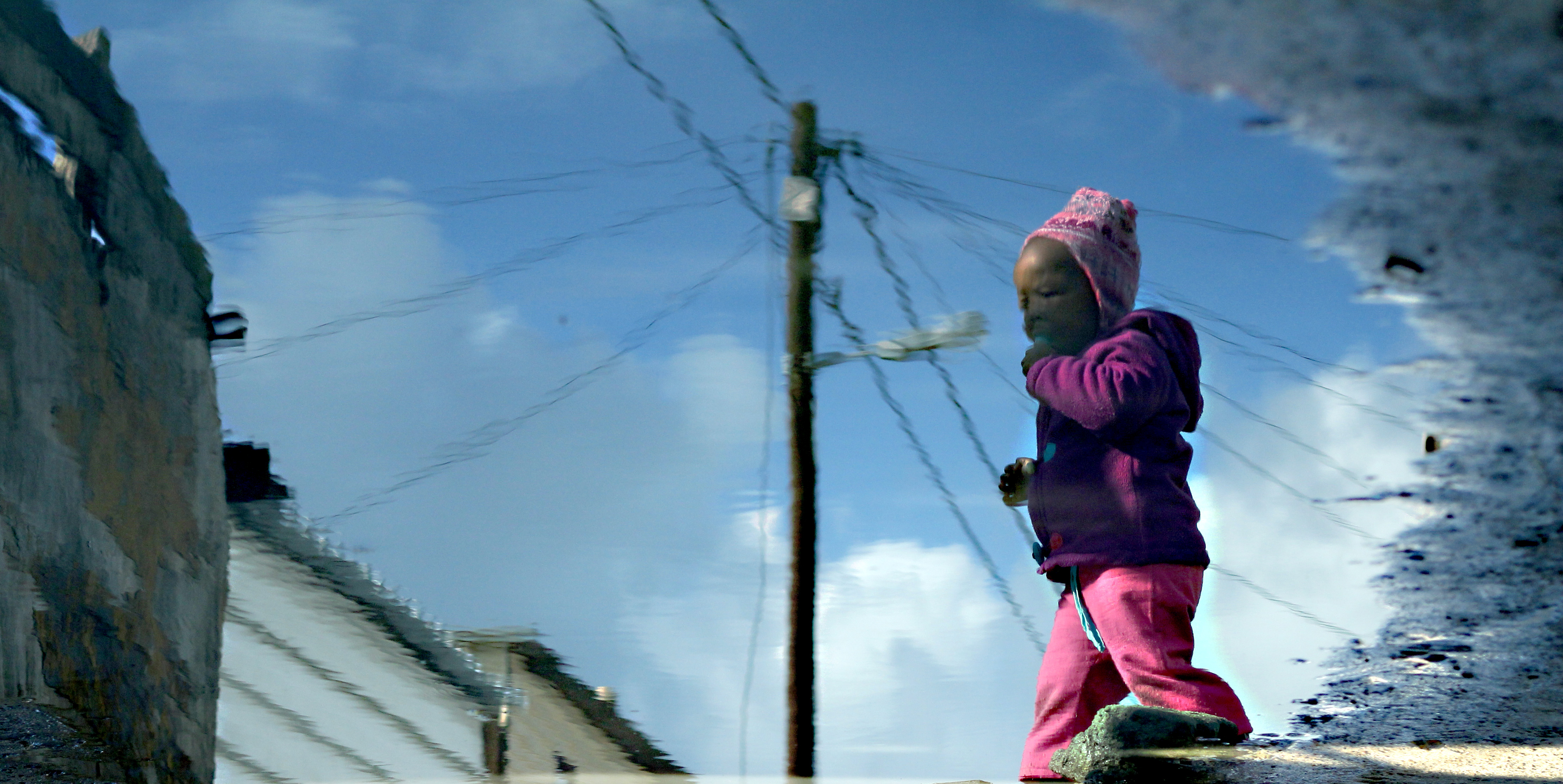
Since last weekend, residents of Never Never have been struggling with the weather. When the rains come, floods follow. The water rises in the dirt roads until it takes over the houses. It comes in through holes under the metal sheet walls and the cracks under doors. Families take refuge on their beds to stay dry.
The drains are blocked, so the water collects on the ground. Residents build makeshift bridges of stones and bricks to traverse the deepest puddles. Children seem to fly over these obstacle courses, but adults move precariously, gripping the walls for balance.
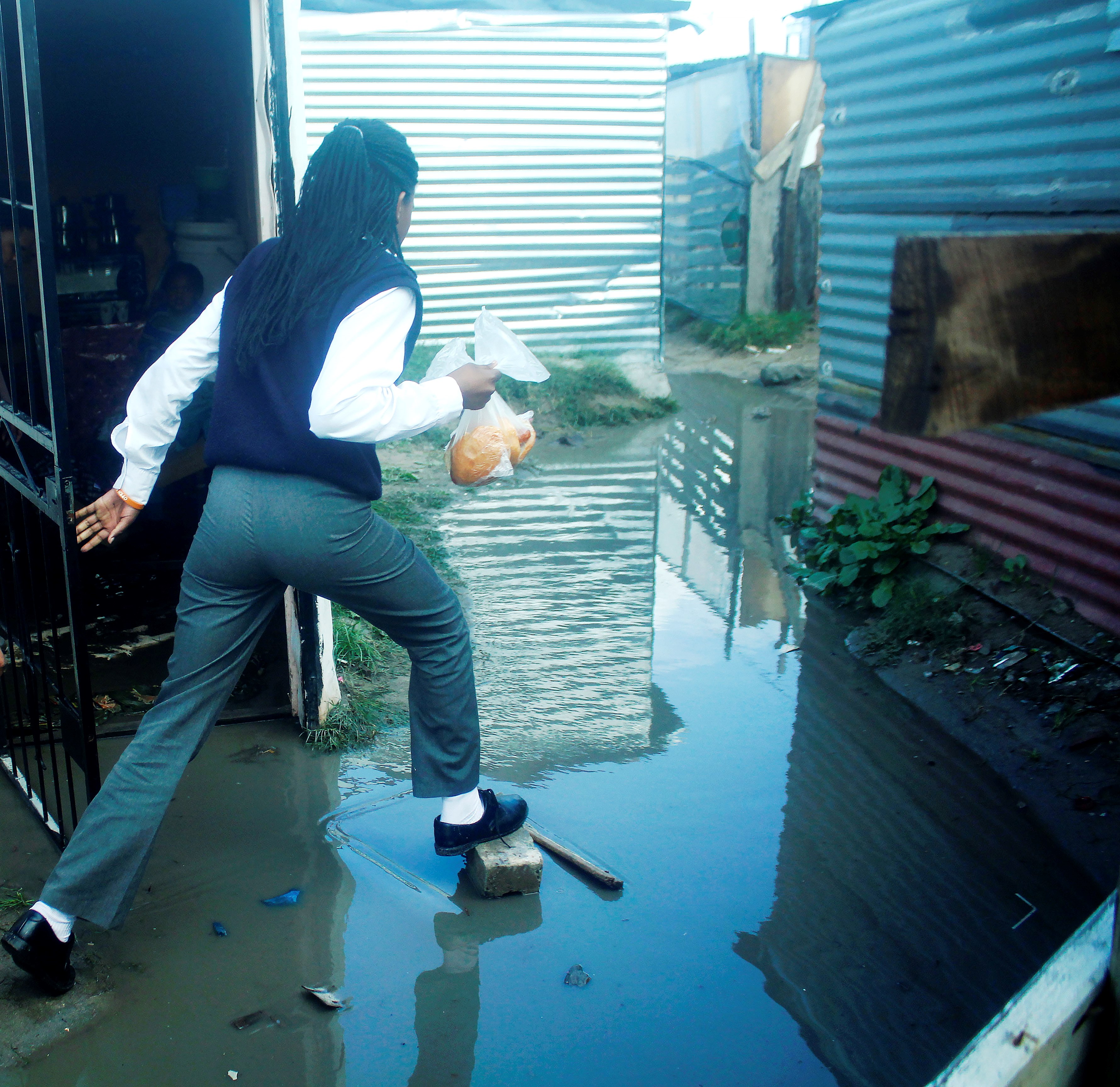
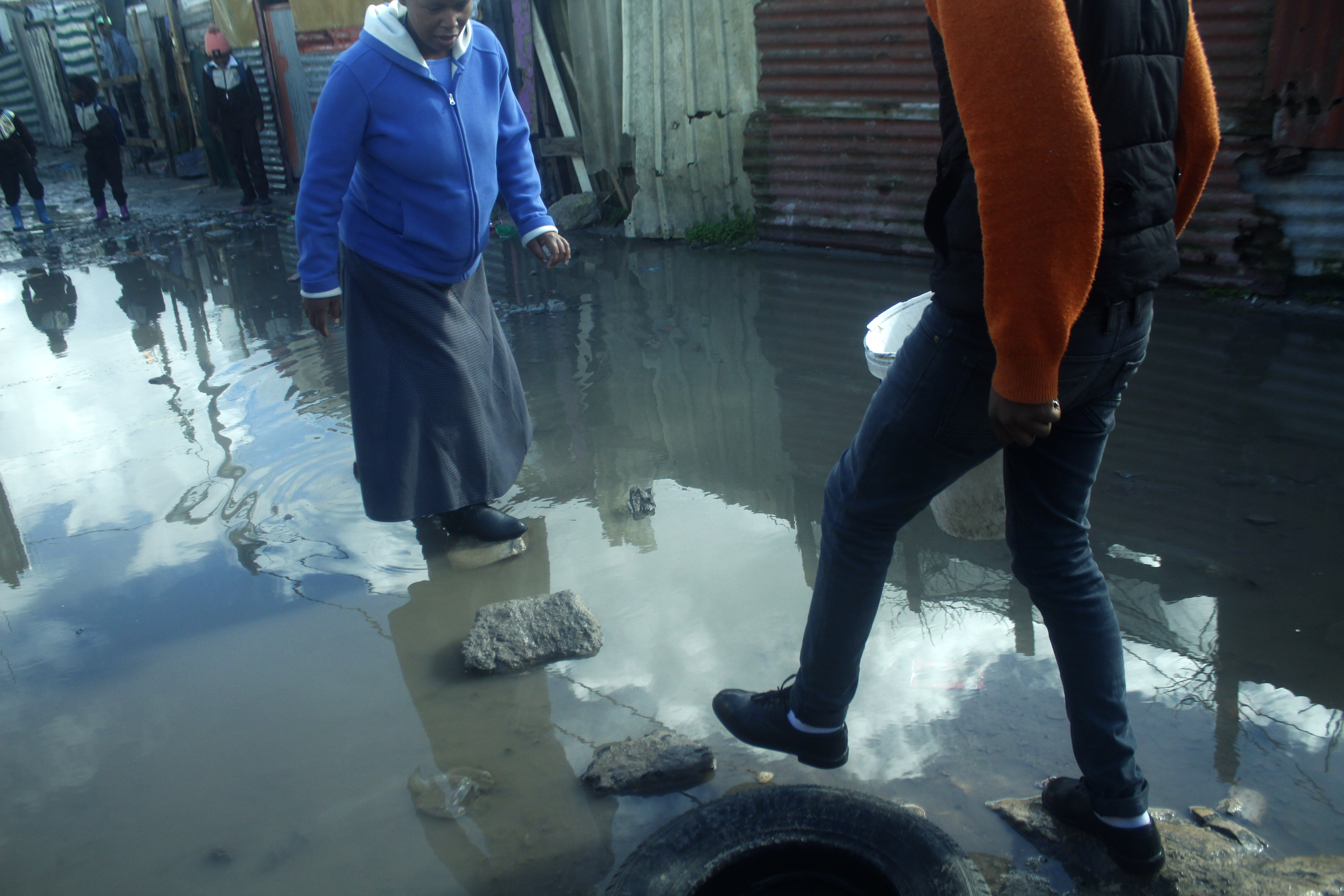 Residents pick their way across the flooded streets in Never Never on Monday. Photo: Masixole Feni
Residents pick their way across the flooded streets in Never Never on Monday. Photo: Masixole Feni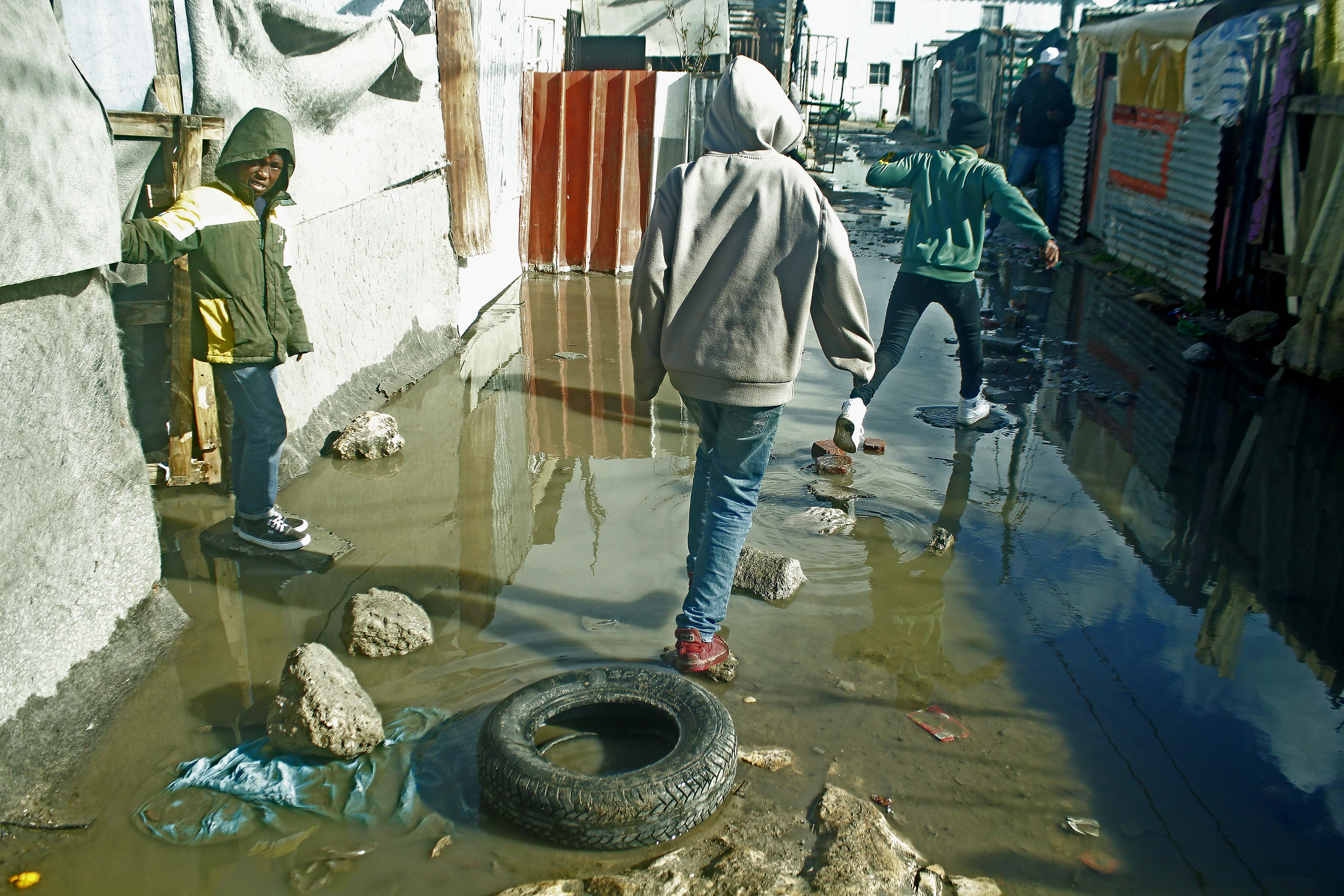 Youngsters crossing a street in Philippi. Residents use bricks, stones, tyres, planks, and anything that comes to hand to make these ‘bridges’. Photo: Masixole Feni
Youngsters crossing a street in Philippi. Residents use bricks, stones, tyres, planks, and anything that comes to hand to make these ‘bridges’. Photo: Masixole FeniSewage overflows into the puddles of rainwater. Most children have rain boots, but many adults cross the rivers of rain and sewage in soaked takkies.
The water washes broken glass and bottle caps to the sides of the roads where children play. Clothing hangs on the line for days at a time in a feeble attempt to dry.
During the worst of the flooding, many children do not make it to school, and many people cannot get to work, says Thandi Sam, a resident. She says the City of Cape Town does not fix the roads and the drains because the roads are too narrow for the maintenance vehicles to get through.
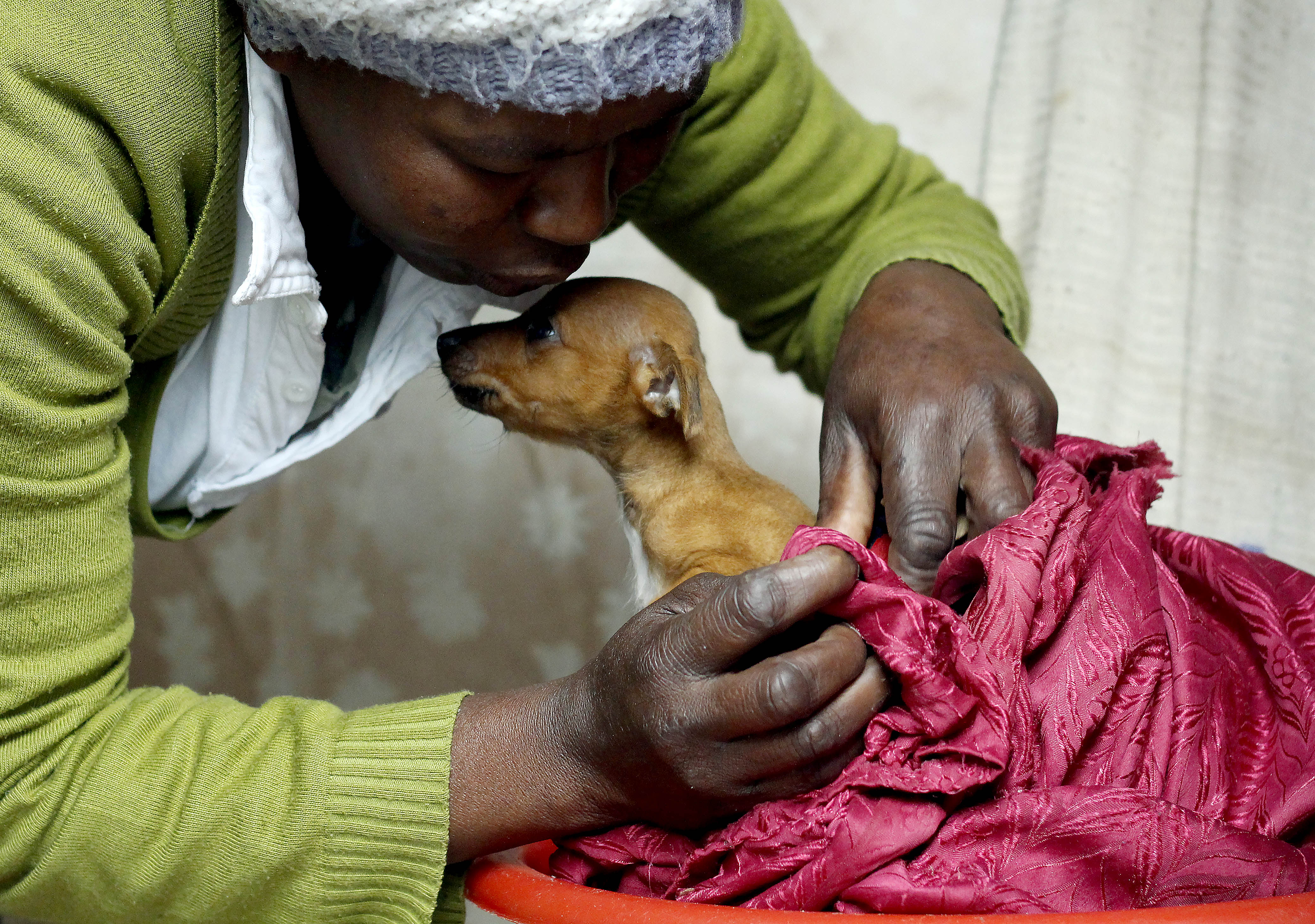
As the water flows into homes from below, it also falls from above. The roofs in many homes leak, so residents catch drips in buckets placed on beds to keep one small part of the home dry.
Nonzame Fuzile uses soap to block the holes in the roof, but it melts when the sun comes out; bigger holes, in the walls, she fills with old clothing.
Other residents block out the wind with pages from magazines. Three different patterns of linoleum fail to cover the floor of one home, while in another, old clothing serves as makeshift carpeting.
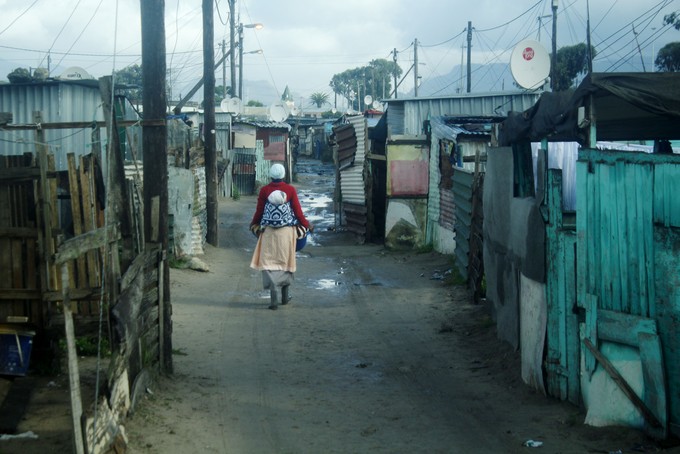 Never Never informal settlement. Photo: Masixole Feni
Never Never informal settlement. Photo: Masixole Feni
In Hita Cubulngu’s shack a blanket is spread over the floor as a carpet. Sand and papers are scattered throughout the room.
Nearby, a driver from Mustafadin Foundation is collecting two big empty pots that had brought food for residents.
In one shack, 400 blankets and 50 food parcels supplied by City Disaster Management are stored for distribution. The parcels included infant formula. Residents say the food is insufficient to feed the area’s 69 children.
Nine people are warming themselves at a small fire inside Cubulngu’s shack. “I have to do this so that my blankets and the room get dry,” he says.
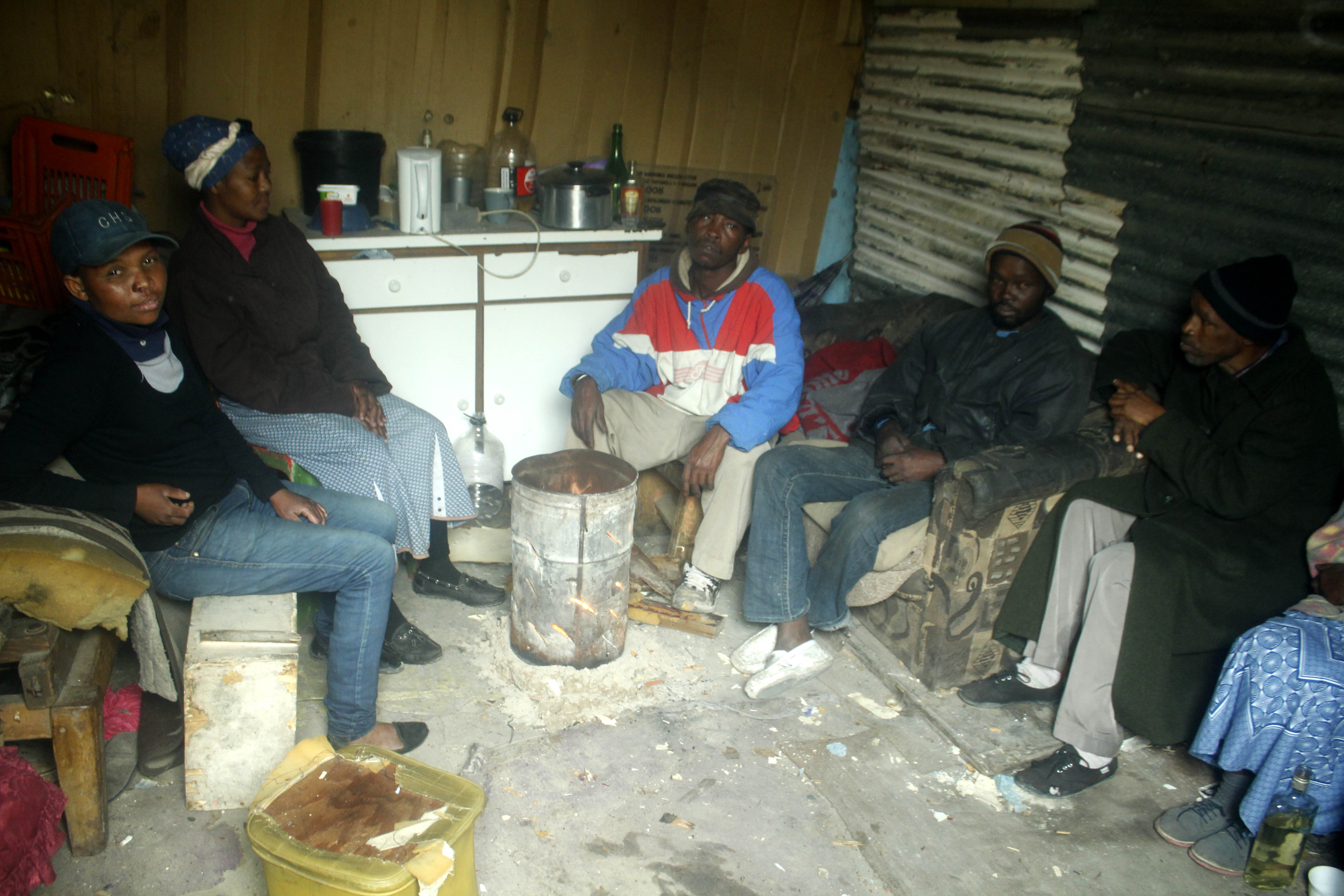 People warm themselves in Hita Cubulngu’s home in Never Never. Photo: Masixole Feni
People warm themselves in Hita Cubulngu’s home in Never Never. Photo: Masixole FeniSupport independent journalism
Donate using Payfast

Don't miss out on the latest news
We respect your privacy, and promise we won't spam you.
© 2016 GroundUp. 
This article is licensed under a Creative Commons Attribution-NoDerivatives 4.0 International License.
You may republish this article, so long as you credit the authors and GroundUp, and do not change the text. Please include a link back to the original article.

